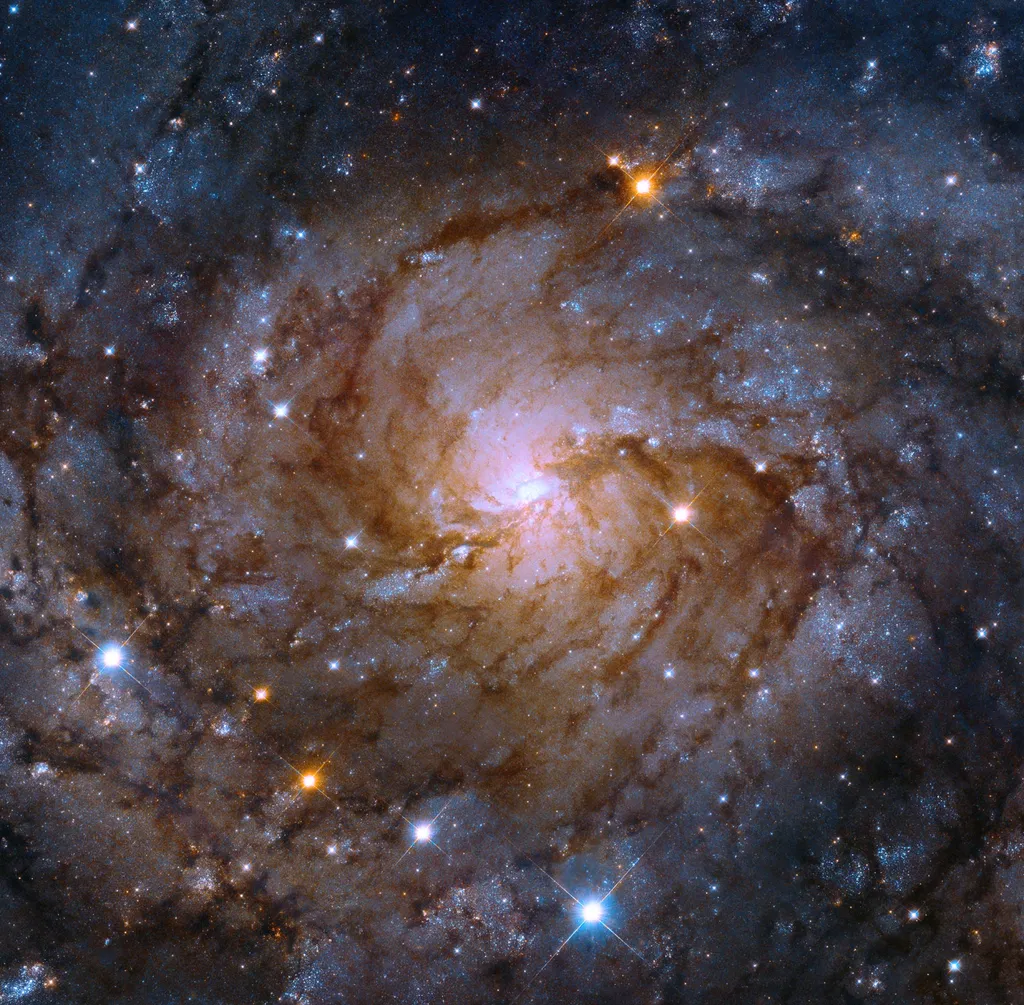

Hubble Space Telescope image of the spiral galaxy IC 342, also known as Caldwell 5, which has the nickname, Hidden Galaxy. Credit: NASA, ESA, P. Sell (University of Florida), and P. Kaaret (University of Iowa); Image processing: G. Kober (NASA Goddard/Catholic University of America
Spiral galaxy IC 342, also known as Caldwell 5, is located approximately 11 million light-years from Earth. Hubble captured this sparkling, face-on view of the center of the galaxy, which displays intertwined tendrils of dust in spectacular arms that wrap around a brilliant core of hot gas and stars.
This core is a specific type of region called an H II nucleus – an area of atomic hydrogen that has become ionized. Such regions are energetic birthplaces of stars where thousands of stars can form over a couple of million years. Each young, extremely hot, blue star emits ultraviolet light, further ionizing the surrounding hydrogen.
Despite its relatively bright 8.4 magnitude, this galaxy doesn’t stand out in the sky. It appears near the equator of the Milky Way’s pearly disk, which is crowded with thick cosmic gas, dark dust, and glowing stars that all obscure our view. This has earned Caldwell 5 the nickname of the Hidden Galaxy.
Were it not obscured by so much interstellar matter, the Hidden Galaxy would be one of the brightest galaxies in our sky. A relatively close galaxy, it is roughly 50,000 light-years across and billions of years old.